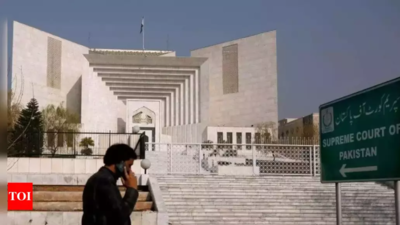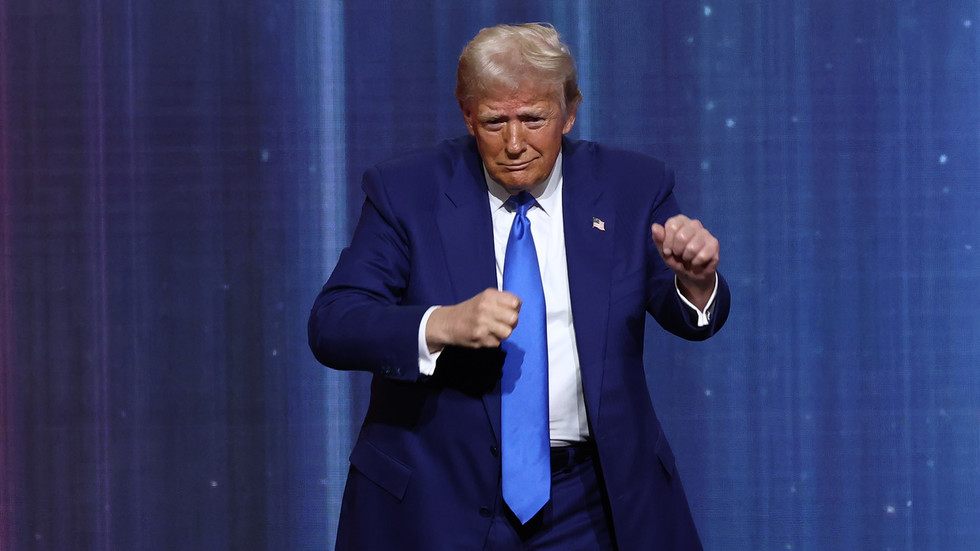
Supreme Court of Pakistan
ISLAMABAD: Pakistan’s Supreme Court on Friday allowed military courts, though conditionally, to announce the reserved verdicts of 85 civilians tried for alleged involvement in last year’s May 9 riots when protesters linked to the Imran Khan-led Pakistan Tehreek-i-Insaf (PTI) had stormed govt and military installations.
A seven-member SC constitution bench, headed by Justice Aminuddin, specified that the
military court verdicts
would be subject to its final decision on appeals against its Oct 23, 2023 ruling barring the army from trying PTI protesters, saying
military trials
of civilians were unconstitutional.
Local and international human rights organisations have expressed concern about the military trials, claiming that they do not adhere to the same evidentiary and due process norms as civilian courts
Hundreds of PTI workers were arrested after they purportedly stormed military and govt buildings, and even torched a top commander’s house, following the former PM’s brief arrest by paramilitary soldiers on May 9, 2023 in a graft case. Among the detainees, the army initiated military trials against 103 accused on charges of treason and attempting to incite mutiny in the military. Though Khan was released after three days, he was rearrested two months later in another corruption case and has been in jail since. There have been widespread reports that the military also plans to prosecute him under the same charges. He, however, has already been indicted by an anti-terrorism court over charges linked to the May 9 riots.
The seven-member SC constitution bench was formed as a result of a controversial amendment to the constitution in Oct this year.
“The final judgment of 85 persons who are under custody and facing trial before the military courts be announced and remissions admissible to the said persons be granted, and persons who can be released after remissions they be released forthwith, and persons who have to yet undergo the sentence awarded to them, their custody be handed over to the concerned jail authorities,” Friday’s court order read.
The
Pakistan Army Act
of 1952 had established military courts, which function under a separate legal system, primarily for trial of military personnel or enemies of the state.
The decision to use military courts for civilians was taken by Imran’sadversary, Prime Minister Shehbaz Sharif, during his first term in office, and was backed by the powerful military establishment.

 3 hours ago
3
3 hours ago
3









